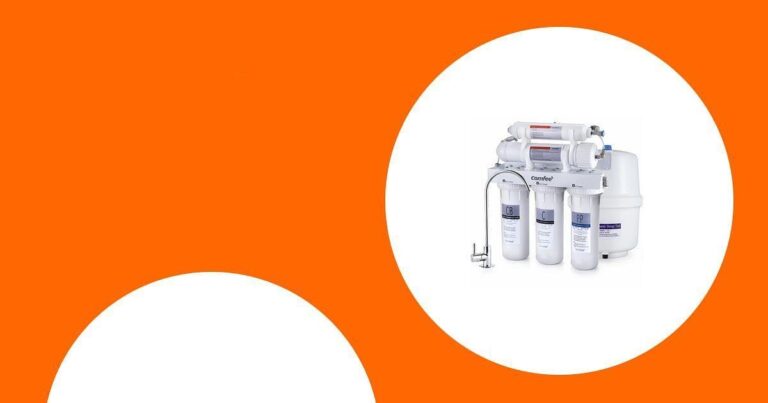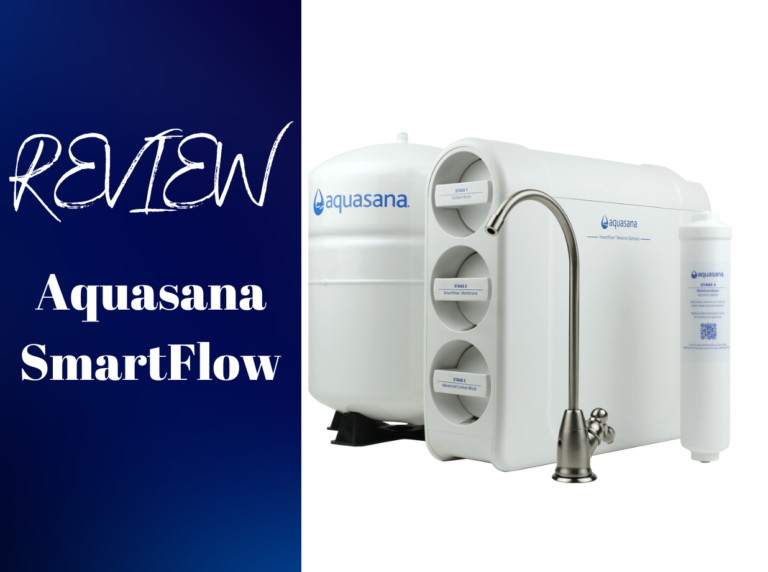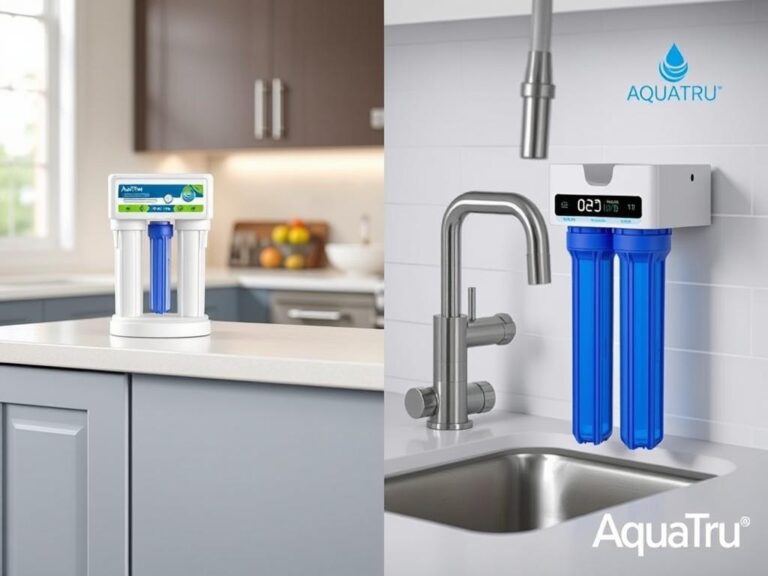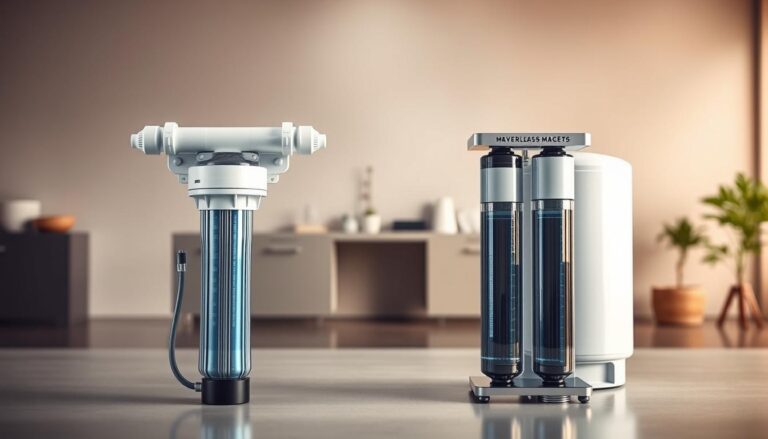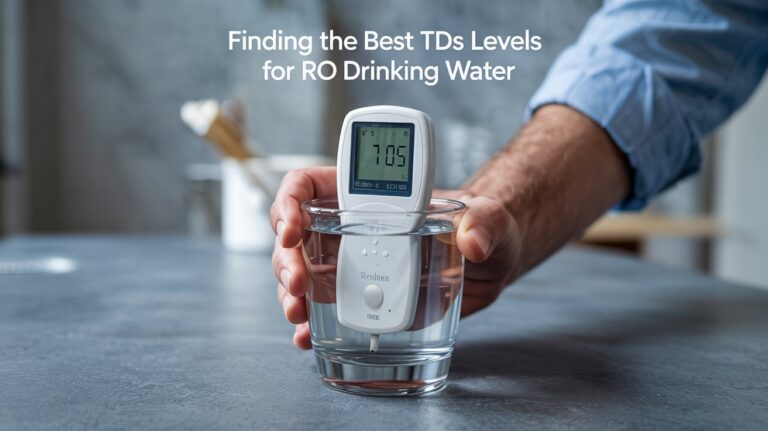How Much Does a Reverse Osmosis Filter Cost?
Investing in a reverse osmosis system brings the luxury of clean, safe water to your home for just $200–$500 for the unit and $150–$300 for installation. With filter replacements costing $30–$100 annually, you’ll enjoy long-term savings on bottled water and potential health expenses—making it a smart, lasting upgrade for any household.
So you’re in the market for a reverse osmosis water filter, but you’re not sure where to begin. Well, one of the first factors you’ll want to consider is the cost. After all, your budget plays a crucial role in determining the options available to you. In this article, we’ll explore the various factors to keep in mind when purchasing a reverse osmosis water filter, starting with the all-important question of how much it will cost you. By the end, you’ll have a better understanding of the key considerations to make an informed purchase that suits both your needs and your wallet.
Key Takeaways:
- Initial Investment: Imagine transforming your home with pristine, purified water for just $200 to $500 for the system and $150 to $300 for installation. While it’s a more substantial upfront investment than basic pitchers or faucet filters, it’s a fraction of the cost compared to whole-house systems, making it an accessible luxury for your household.
- Long-Term Savings: Picture the savings flowing in as you bid farewell to costly bottled water. With a home reverse osmosis system, you not only cut down on recurring expenses but also potentially reduce medical bills by safeguarding your family from contaminants found in unfiltered tap water. And with minimal maintenance costs, the savings keep adding up year after year.
- Maintenance Costs: Stay ahead with simple maintenance routines. Replace pre-filters every 6-12 months and the RO membrane every 2-3 years to keep your system in peak condition. Opting for DIY upkeep not only ensures ongoing performance but also saves you from hefty professional service charges.
- Filter Replacement Expenses: Keep costs under control with replacement filters ranging from $20 to $100. The frequency of replacements depends on your water usage and quality, but rest assured, it’s a far cry from the frequent changes required by less robust filtration methods like pitchers or faucet filters.

Introduction
- Home reverse osmosis water filters are a popular choice for homeowners looking to improve the quality of their drinking water. These systems use a multi-stage filtration process to remove contaminants, impurities, and odors from tap water, providing clean and great-tasting water for drinking, cooking, and other household uses. The reverse osmosis process involves pushing water through a semi-permeable membrane to remove particles, chemicals, and minerals, resulting in purified water.
- The purpose of this article is to provide a comprehensive analysis of the costs and benefits associated with investing in a home reverse osmosis water filter. We will explore the initial investment required for purchasing and installing the system, as well as the long-term savings, maintenance costs, filter replacement expenses, energy consumption, water quality improvement, health benefits, environmental impact, convenience and accessibility, resale value of the home, and comparison with other water filtration systems. By examining these factors, homeowners can make an informed decision about whether a home reverse osmosis water filter is a worthwhile investment for their household.
Initial Investment
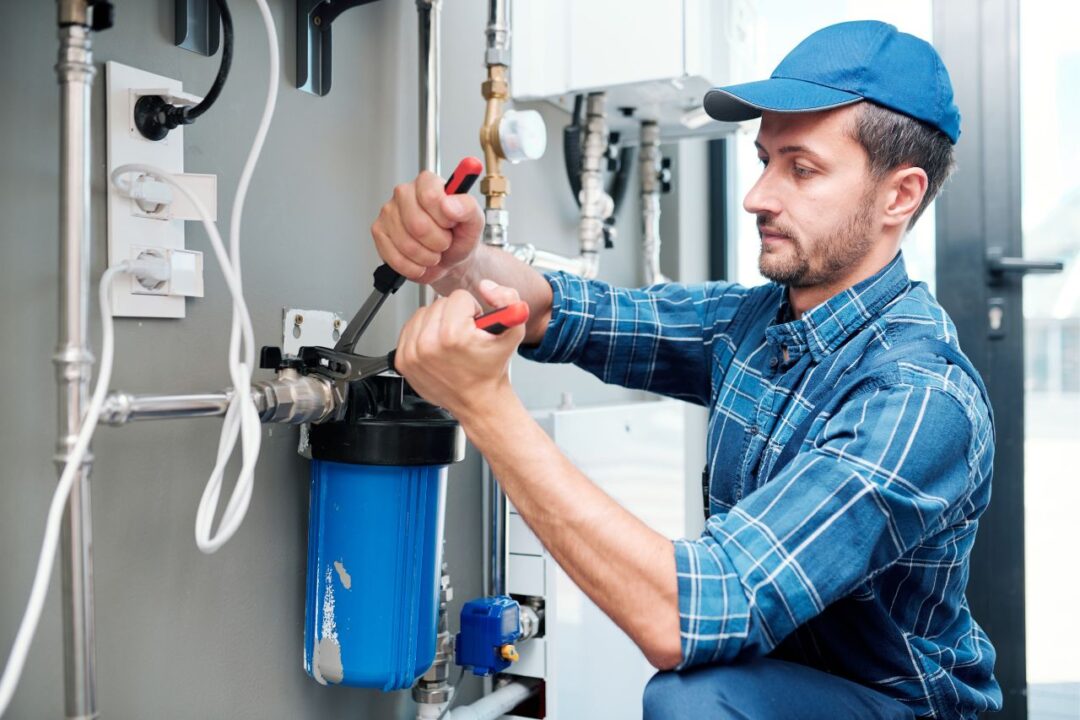
- The cost of purchasing and installing a home reverse osmosis water filter can vary depending on the brand, model, and features of the system. On average, homeowners can expect to spend between $200 to $500 for the initial purchase of the system. Installation costs may range from $150 to $300 if professional help is required. Factors that may affect the initial investment include the size of the system, additional features such as remineralization or UV sterilization, and any pre-filtration or post-filtration components.
- When comparing with other water filtration systems such as pitcher filters or faucet filters, home reverse osmosis systems tend to have a higher initial investment. However, when compared to whole-house filtration systems, which can cost thousands of dollars to install, home reverse osmosis systems are relatively more affordable for homeowners who are primarily concerned with improving the quality of their drinking water.
Long-Term Savings
- One of the significant long-term savings associated with a home reverse osmosis water filter is the reduction in spending on bottled water. With access to clean and purified drinking water at home, homeowners can eliminate or significantly reduce their reliance on single-use plastic bottles, leading to substantial cost savings over time.
- Additionally, improved water quality from a reverse osmosis system may lead to potential decreases in medical expenses due to reduced exposure to contaminants and impurities in unfiltered tap water. By consuming cleaner and healthier water, individuals may experience fewer health issues related to poor water quality.
- When compared with ongoing costs of other water filtration systems such as pitcher filters or faucet filters that require frequent replacement of filter cartridges, home reverse osmosis systems offer long-term savings as they typically have lower ongoing maintenance costs.
Maintenance Costs
- Regular maintenance requirements for a home reverse osmosis water filter include periodic filter replacements, sanitization of the system, and monitoring of water pressure and flow rates. While these tasks are relatively simple and can be performed by homeowners themselves, they are essential for ensuring the continued effectiveness of the filtration system.
- For homeowners who prefer professional maintenance services, the cost may range from $100 to $200 per year depending on the complexity of the system and any additional components that require servicing.
- DIY maintenance options for home reverse osmosis systems include purchasing replacement filters and sanitization kits from the manufacturer or authorized distributors and following detailed instructions provided in the user manual. By performing these tasks independently, homeowners can save on professional maintenance costs.
Filter Replacement Expenses

- The frequency of filter replacements for a home reverse osmosis water filter depends on the usage level and the quality of incoming tap water. On average, sediment pre-filters may need replacement every 6-12 months, carbon pre-filters every 6-12 months, post-carbon filters every 6-12 months, and the RO membrane every 2-3 years.
- The cost of replacement filters varies by brand and model but generally ranges from $20 to $100 per filter. Homeowners should factor in these ongoing expenses when considering the long-term cost of owning a reverse osmosis system.
- When compared with other water filtration systems such as pitcher filters or faucet filters that require more frequent replacement of filter cartridges (every 1-3 months), home reverse osmosis systems offer cost savings in terms of filter replacement expenses over time.
Energy Consumption
- Home reverse osmosis water filters typically consume minimal energy during operation as they rely on water pressure to push tap water through the filtration process. The energy usage is primarily attributed to running the system’s pump and any additional components such as UV sterilization or remineralization units.
- The potential impact on utility bills from using a home reverse osmosis system is negligible compared to other household appliances or electronic devices.
- When compared with energy consumption of other water filtration systems such as whole-house filtration systems that may require electricity to operate pumps or UV sterilization units continuously, home reverse osmosis systems offer energy efficiency and lower long-term operating costs.
Water Quality Improvement
- Home reverse osmosis water filters are highly effective at removing contaminants and impurities from tap water including chlorine, fluoride, lead, arsenic, nitrates, pesticides, bacteria, viruses, and other harmful substances that may be present in unfiltered tap water.
- When compared with other filtration systems such as pitcher filters or faucet filters that may only target specific contaminants or have limited effectiveness in removing impurities from tap water, home reverse osmosis systems provide superior water quality improvement by producing purified drinking water that meets stringent quality standards.
- Potential health risks associated with unfiltered tap water include exposure to harmful chemicals and microorganisms that can lead to gastrointestinal issues, skin irritations, respiratory problems, and long-term health effects such as cancer or developmental disorders.
Health Benefits

- Consuming filtered water from a home reverse osmosis system can lead to potential health improvements such as better hydration due to improved taste and odor of the water, reduced exposure to harmful substances present in unfiltered tap water, and overall well-being from knowing that the drinking water is clean and safe for consumption.
- By reducing exposure to contaminants such as lead, chlorine by-products (THMs), volatile organic compounds (VOCs), and microbial pathogens commonly found in unfiltered tap water, individuals can lower their risk of developing health issues related to poor water quality.
- When compared with health benefits of other filtration systems such as pitcher filters or faucet filters that may have limited effectiveness in removing certain contaminants or impurities from tap water, home reverse osmosis systems offer comprehensive health benefits by providing purified drinking water that meets strict quality standards.
Environmental Impact
- Investing in a home reverse osmosis water filter can contribute to reducing plastic waste from bottled water consumption since homeowners can significantly decrease their reliance on single-use plastic bottles by having access to clean drinking water at home.
- Additionally, by choosing a filtration method that removes contaminants and impurities from tap water at the point of use rather than relying on centralized treatment facilities or bottled water production processes that contribute to pollution through transportation and packaging waste generation.
- When compared with environmental impact of other filtration systems such as pitcher filters or faucet filters that still rely on single-use plastic cartridges or produce wastewater during operation without effectively removing contaminants from tap water at source point like reverse osmosis systems do offer greater environmental benefits by reducing plastic waste generation and decreasing overall pollution associated with bottled water consumption.
Convenience and Accessibility
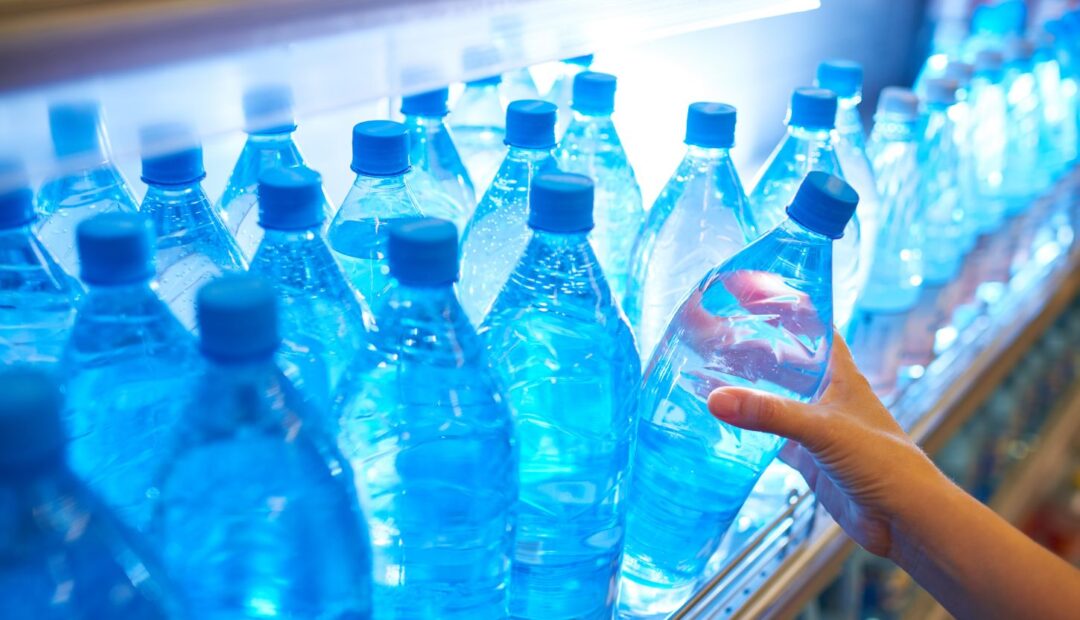
- Having access to clean drinking water at home through a reverse osmosis system offers unparalleled convenience for homeowners who no longer need to purchase bottled water or rely on alternative filtration methods for obtaining purified drinking water.
- Home reverse osmosis systems are designed for ease of use with simple operation and minimal maintenance requirements making them accessible for individuals who seek an efficient way to improve their drinking water quality without complicated installation procedures or ongoing service needs.
- When compared with convenience of other filtration systems such as pitcher filters or faucet filters that may require frequent refilling or replacement of filter cartridges along with whole-house filtration systems that involve complex installation processes or professional maintenance services home reverse osmosis systems offer unmatched convenience by providing continuous access to clean drinking without hassle associated with alternative methods.
Resale Value of the Home
- Potential increase in home value with a built-in home reverse osmosis system can attract potential buyers who prioritize having access to clean drinking without relying on bottled alternatives or alternative filtration methods when considering purchasing property making it an attractive feature for resale purposes.
- Homeowners who invest in a high-quality home reverse osmosis system may see an increase in interest from potential buyers who recognize the value of having purified drinking available at point-of-use without additional costs associated with bottled alternatives making it an appealing feature when selling property.
- When compared with resale value impact of other filtration systems such as pitcher filters or faucet filters that may not significantly influence property value whole-house filtration systems which require substantial investment upfront but offer comprehensive coverage throughout property including outdoor areas where point-of-use systems cannot reach investing in high-quality home reverse osmosis system offers competitive advantage when selling property due its convenience accessibility environmental benefits health improvements making it an attractive feature for potential buyers seeking modern amenities sustainable living options within residential market.
Conclusion
In conclusion, investing in a home reverse osmosis water filter can be worth it for many homeowners, especially when considering the long-term benefits and cost savings. While the initial investment for a high-quality reverse osmosis system may seem significant, it is important to consider the long-term savings that come with having access to clean, purified water in your home. The convenience and accessibility of having purified water at your fingertips can also be a significant benefit for many households.In conclusion, investing in a home reverse osmosis water filter can be worth it for many homeowners, especially when considering the long-term benefits and cost savings. While the initial investment for a high-quality reverse osmosis system may seem significant, it is important to consider the long-term savings that come with having access to clean, purified water in your home. The convenience and accessibility of having purified water at your fingertips can also be a significant benefit for many households.



